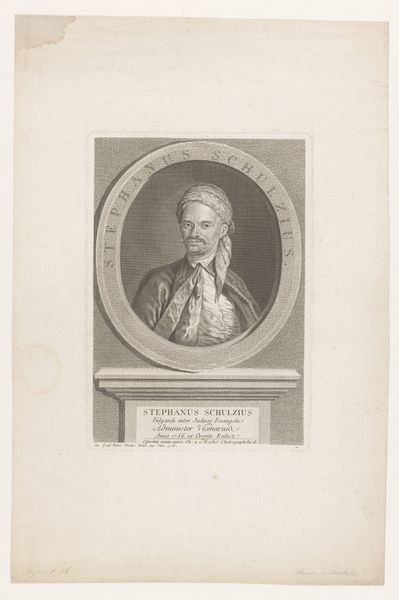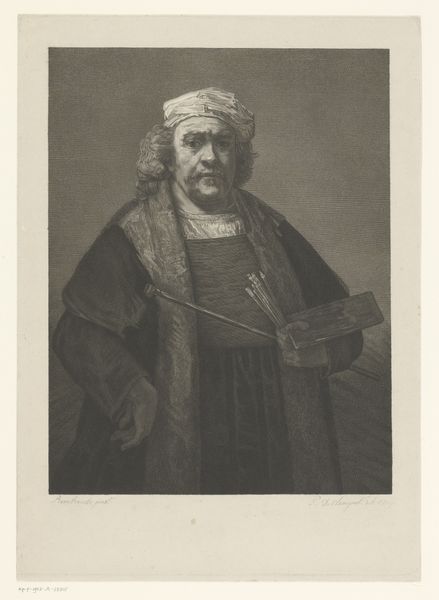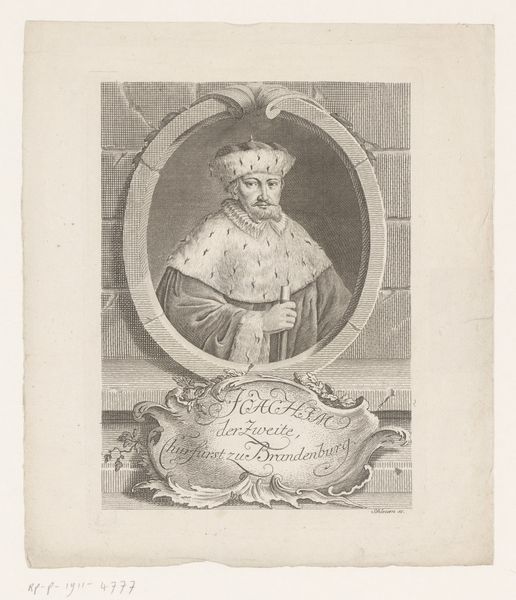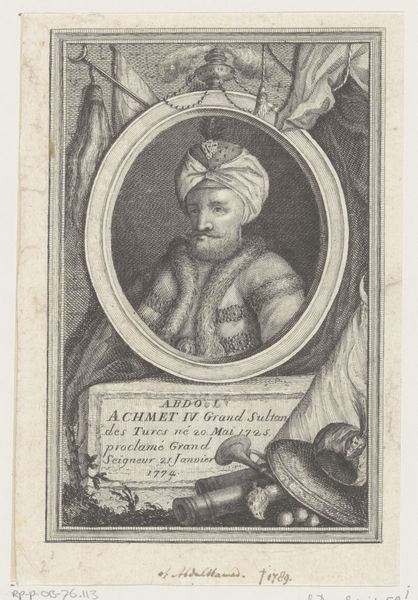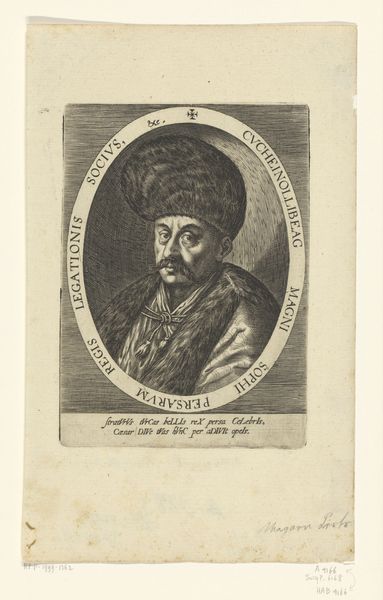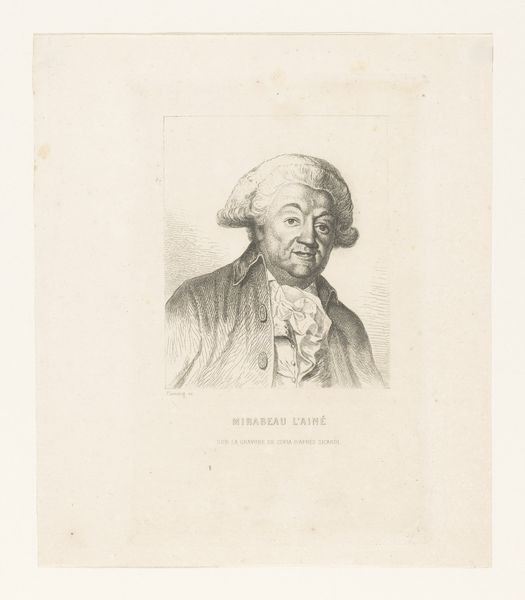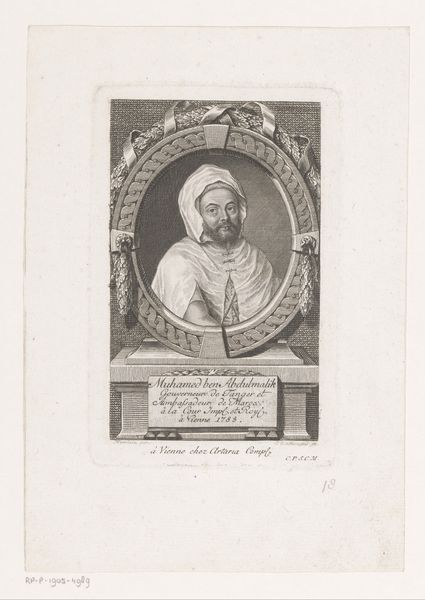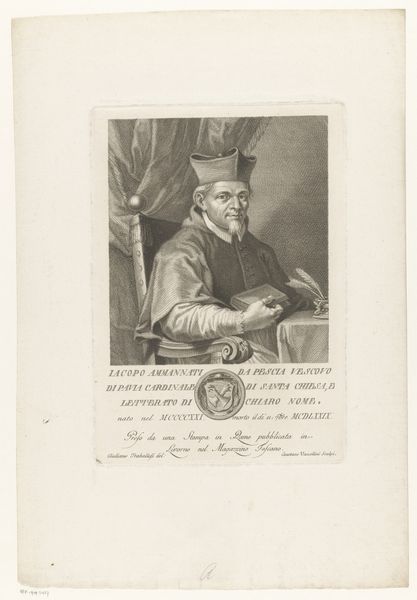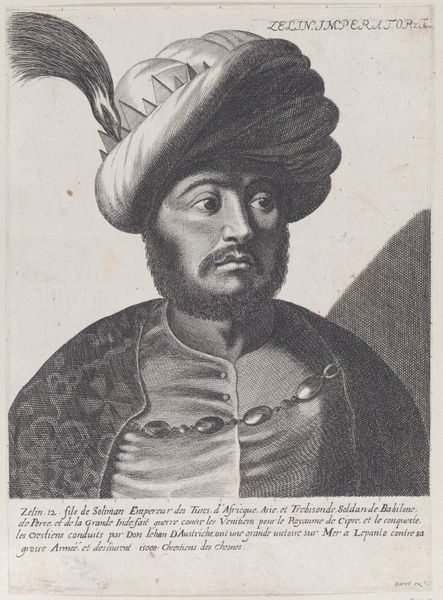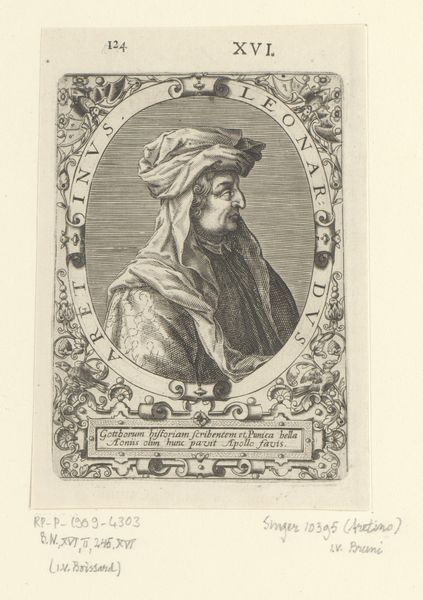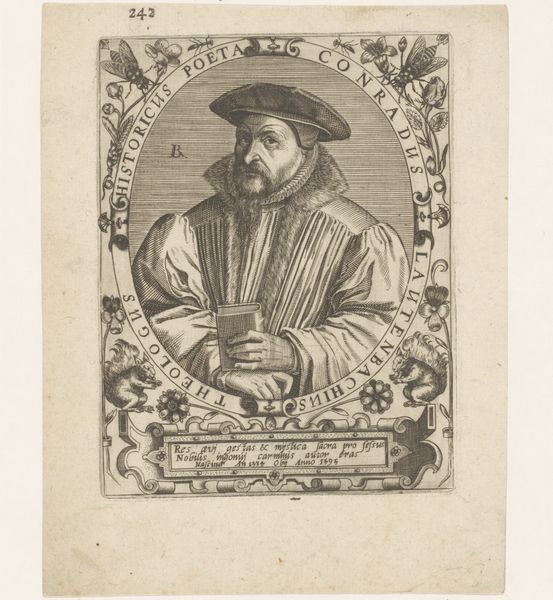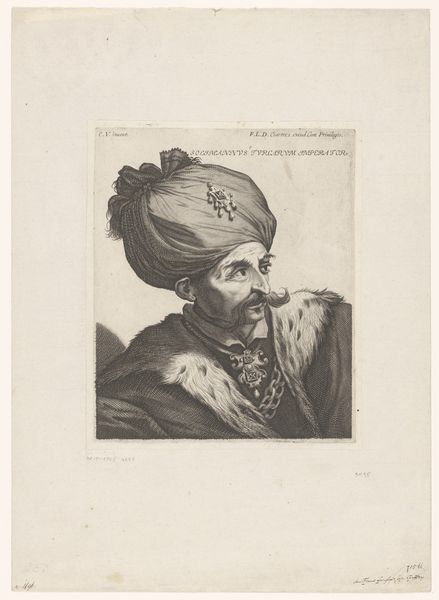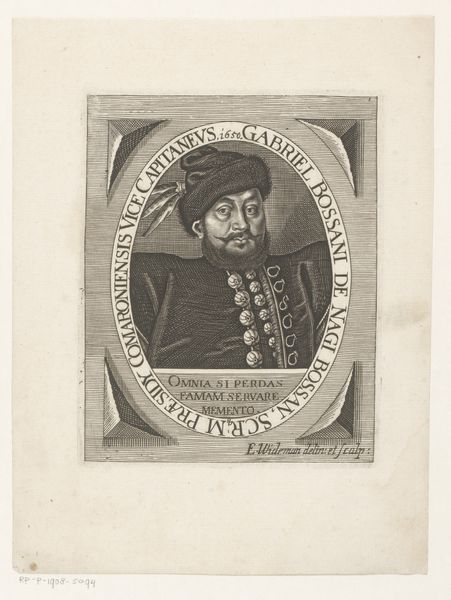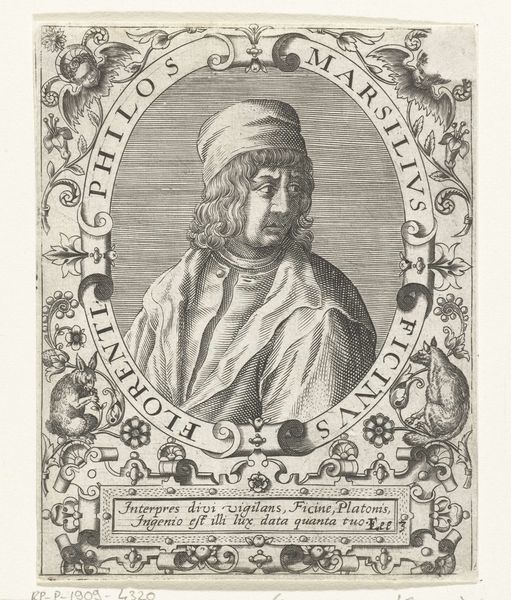
print, engraving
#
portrait
#
baroque
# print
#
history-painting
#
engraving
Dimensions: height 189 mm, width 140 mm
Copyright: Rijks Museum: Open Domain
This is Antoine de Marcenay de Ghuy’s etching of Rembrandt, made sometime between 1724 and 1811. Look at the print’s composition, how the figure of Rembrandt emerges from a dark, textured background, achieved through the meticulous use of line and shading. Notice the two circles faintly etched behind his head, hovering like spectral halos. The rough, almost unfinished quality of the background contrasts with the more detailed rendering of Rembrandt’s face, drawing our attention to his expression. The circles, though faint, introduce an element of abstraction, disrupting the realism of the portrait. What do these shapes mean? Perhaps they are symbolic, alluding to knowledge, or even perfection. These formal choices create a dialogue between representation and abstraction. The image invites us to consider not just who Rembrandt was, but also how his image functions within a complex visual language. It’s a reminder that art operates on multiple levels, challenging us to decode its signs and meanings.
Comments
No comments
Be the first to comment and join the conversation on the ultimate creative platform.
